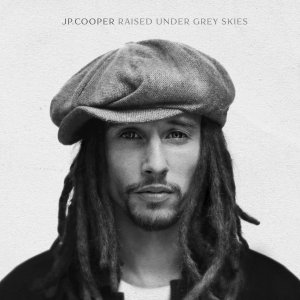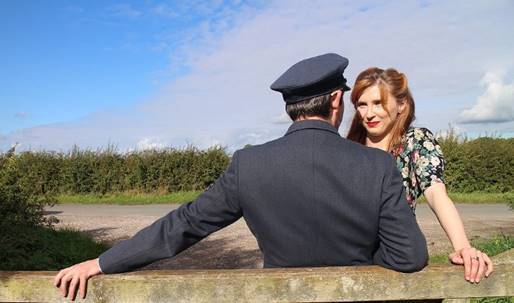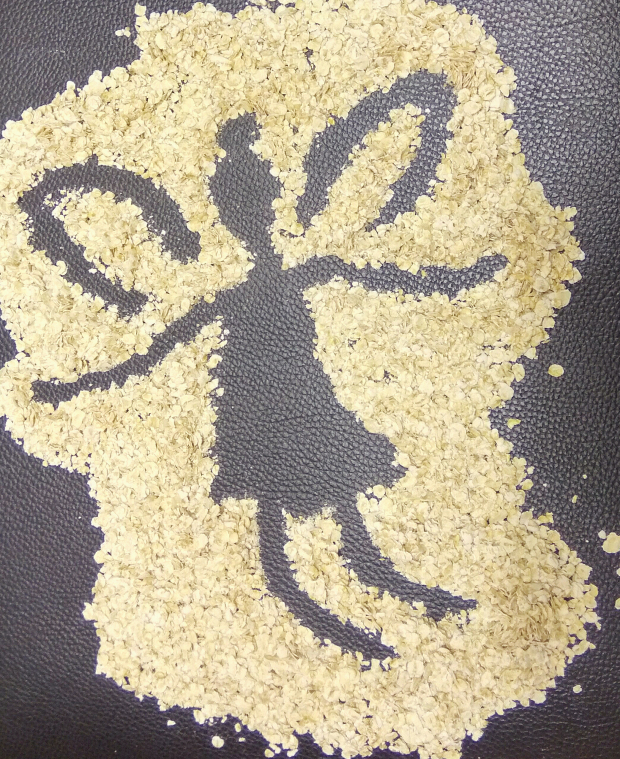
by NONA BLYTH CLOUD
What a lot of words we have in English for the things that give us that unsettling tingly feeling!
eer-ie – adjective
uncanny, sinister, ghostly, unnatural, unearthly, odd,
supernatural, otherworldly, strange, abnormal, weird, freakish, creepy, scary, spooky, freaky, frightening,
bone-chilling, spine-chilling, hair-raising, blood-curdling . . .
Middle English, originally of northern English-Scots origin, related to German arg
In the Northern Hemisphere, October is the month we need all these words. As the temperature cools, the nights grow longer, and misty halos wreathe streetlamps and porch lights, we find ourselves looking over our shoulders more often, and listening for sounds that seem just at the edge of our hearing. And all of that culminates in Halloween, all Hallows Eve, the ancient Celtic Samhain.
So I’ve assembled some poems to suit this Autumnal mood. Don’t be surprised if you start feeling like something is watching you – and waiting . . .
__________________________________________________________
Rae Armantrout (1947 – ) was born in Vallejo Valley CA, and has published eleven books of poetry so far. She has been teaching writing at the University of California, San Diego for a couple of decades. Armantrout was awarded the 2009 National Books Critics Award and the 2010 Pulitzer Prize for Poetry for her book Versed
DjinnHaunted, they say, believing
the soft, shifty
dunes are made up
of false promises.
Many believe
whatever happens
is the other half
of a conversation.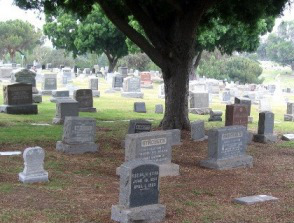
Many whisper
white lies
to the dead.
“The boys are doing really well.”
Some think
nothing is so
until it has been witnessed.
They believe
the bits are iffy;
the forces that bind them,
absolute.
“Djinn” from Partly, © 2016 by Rae Armantrout – Wesleyan University Press
______________________________________________________
______________________________________________________
More Rae Armantrout:
UnbiddenThe ghosts swarm.
They speak as one person.
Each loves you.
Each has left something
undone.
Did the palo verde
blush yellow
all at once?
Today’s edges
are so sharp
they might cut
anything that moved.
The way a lost
word
will come back
unbidden.
You’re not interested
in it now,
only
in knowing
where it’s been.

“Unbidden” from Versed, © 2009 by Rae Armantrout – Wesleyan University Press
______________________________________________________
Paul Lawrence Dunbar (1872-1906) was born in Dayton OH, the son of freed slaves, was one of the first African American poets to gain national recognition. When he moved to Chicago in 1893, he became friends with Frederick Douglass, who helped him find a job as a clerk, and arranged a public reading for Dunbar to present his poems. Within two years, his poems were appearing in national magazines and newspapers, including the New York Times. After a reading tour of England in 1897, he received a clerkship at the Library of Congress, but by 1898, he was suffering from tuberculosis, and resigned his position to concentrate on writing and giving readings. He died in his mother’s home in Dayton, at the age of 33.
The Haunted OakPray why are you so bare, so bare,
Oh, bough of the old oak-tree;
And why, when I go through the shade you throw,
Runs a shudder over me?
My leaves were green as the best, I trow,
And sap ran free in my veins,
But I say in the moonlight dim and weird
A guiltless victim’s pains.
I bent me down to hear his sigh;
I shook with his gurgling moan,
And I trembled sore when they rode away,
And left him here alone.
They’d charged him with the old, old crime,
And set him fast in jail:
Oh, why does the dog howl all night long,
And why does the night wind wail?
He prayed his prayer and he swore his oath,
And he raised his hand to the sky;
But the beat of hoofs smote on his ear,
And the steady tread drew nigh.
Who is it rides by night, by night,
Over the moonlit road?
And what is the spur that keeps the pace,
What is the galling goad?
And now they beat at the prison door,
“Ho, keeper, do not stay!
We are friends of him whom you hold within,
And we fain would take him away
“From those who ride fast on our heels
With mind to do him wrong;
They have no care for his innocence,
And the rope they bear is long.”
They have fooled the jailer with lying words,
They have fooled the man with lies;
The bolts unbar, the locks are drawn,
And the great door open flies.
Now they have taken him from the jail,
And hard and fast they ride,
And the leader laughs low down in his throat,
As they halt my trunk beside.
Oh, the judge, he wore a mask of black,
And the doctor one of white,
And the minister, with his oldest son,
Was curiously bedight.
Oh, foolish man, why weep you now?
‘Tis but a little space,
And the time will come when these shall dread
The mem’ry of your face.
I feel the rope against my bark,
And the weight of him in my grain,
I feel in the throe of his final woe
The touch of my own last pain.
And never more shall leaves come forth
On the bough that bears the ban;
I am burned with dread, I am dried and dead,
From the curse of a guiltless man.
And ever the judge rides by, rides by,
And goes to hunt the deer,
And ever another rides his soul
In the guise of a mortal fear.
And ever the man he rides me hard,
And never a night stays he;
For I feel his curse as a haunted bough,
On the trunk of a haunted tree.
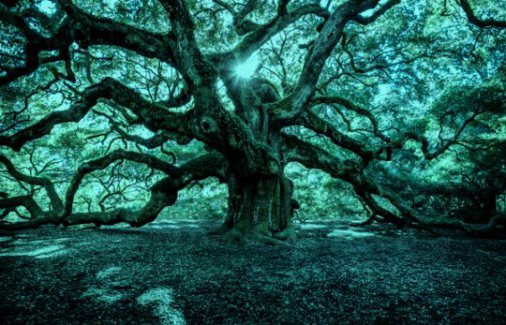
The Complete Poems of Paul Laurence Dunbar (Dodd Mead & Company, 1913)
______________________________________________________
Dorothea Tanning (1910-2012) was a painter, printmaker, sculptor, writer and poet. She was born in Galesburg IL. She moved to Chicago in 1930 to work as a commercial artist, and there she first encountered Surrealism at Chicago’s Museum of Modern Art. Her work for Macy’s department store so impressed their art director that he introduced her to gallery owner Julien Levy, who mounted solo exhibitions of her work in 1944 and 1948. He introduced her to other painters allied with his New York gallery, including Max Ernst, who left his wife, Peggy Guggenheim, for Tanning. They were married in 1946 in a double wedding with Man Ray amd Juliet Browner, and remained married for 34 years, living for many years in France, where she remained after his death in 1976. Her return to New York in the 1980s precipitated a shift in focus to her writing, which had been a secondary pursuit for most of her life. She published six books of poetry before her death at the age of 101.
All Hallows’ EveBe perfect, make it otherwise.
Yesterday is torn in shreds.
Lightning’s thousand sulfur eyes
Rip apart the breathing beds.
Hear bones crack and pulverize.
Doom creeps in on rubber treads.
Countless overwrought housewives,
Minds unraveling like threads,
Try lipstick shades to tranquilize
Fears of age and general dreads.
Sit tight, be perfect, swat the spies,
Don’t take faucets for fountainheads.
Drink tasty antidotes. Otherwise
You and the werewolf: newlyweds.
“All Hallows’ Eve” from Coming to That, © 2011 by Dorothea Tanning – Graywolf Press
______________________________________________________
Annie Finch (1956 – ) was born on October 31st in New Rochelle NY. Being born on Halloween has had an noticeable impact on her work. Regarded as a central figure in contemporary American poetry, she has published over eighteen books, which include her own poetry, literary essays, and criticism, as well as several anthologies which she edited. Her mother was the poet Margaret Rockwell Finch. For fifteen months, beginning at the age of six, she lived in Europe and the Middle East, which she says affected her sense of language as incantation.
Samhain(The Celtic Halloween)
In the season leaves should love,
since it gives them leave to move
through the wind, towards the ground
they were watching while they hung,
legend says there is a seam
stitching darkness like a name.
Now when dying grasses veil
earth from the sky in one last pale
wave, as autumn dies to bring
winter back, and then the spring,
we who die ourselves can peel
back another kind of veil
that hangs among us like thick smoke.
Tonight at last I feel it shake.
I feel the nights stretching away
thousands long behind the days
till they reach the darkness where
all of me is ancestor.
I move my hand and feel a touch
move with me, and when I brush
my own mind across another,
I am with my mother’s mother.
Sure as footsteps in my waiting
self, I find her, and she brings
arms that carry answers for me,
intimate, a waiting bounty.
“Carry me.” She leaves this trail
through a shudder of the veil,
and leaves, like amber where she stays,
a gift for her perpetual gaze.
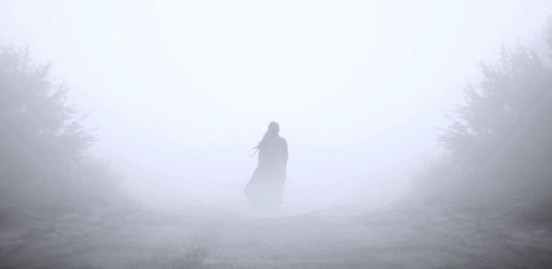
“Samhain” from Eve, © 1997 by Annie Finch – Carnegie Mellon University Press
______________________________________________________
Mary Karr (1955 – ) was born in Groves, in southeast Texas, and lived there until she moved to Los Angeles CA in 1972. She has written three memoirs: The Liar’s Club (1995), which was on the New York Times bestseller list for over a year, Cherry (2000), and Lit: A Memoir (2000), which she describes as “my journey from blackbelt sinner and lifelong agnostic to unlikely Catholic.” However, she remains a feminist, in favor of women’s ordination to the priesthood, and pro-choice on abortion, describing this as being a “cafeteria Catholic.” Karr is the Jesse Truesdell Peck Professor of English at Syracuse University.
Field of SkullsStare hard enough at the fabric of night,
and if you’re predisposed to dark—let’s say
the window you’ve picked is a black
postage stamp you spend hours at,
sleepless, drinking gin after the I Love
Lucy reruns have gone off—stare
like your eyes have force, and behind
any night’s taut scrim will come the forms
you expect pressing from the other side.
For you: a field of skulls, angled jaws
and eye-sockets, a zillion scooped-out crania.
They’re plain once you think to look.
You know such fields exist, for criminals
roam your very block, and even history lists
monsters like Adolf and Uncle Joe
who stalk the earth’s orb, plus minor baby-eaters
unidentified, probably in your very midst. Perhaps
that disgruntled mail clerk from your job
has already scratched your name on a bullet—that’s him
rustling in the azaleas. You caress the thought,
for it proves there’s no better spot for you
than here, your square-yard of chintz sofa, hearing
the bad news piped steady from your head. The night
is black. You stare and furious stare,
confident there are no gods out there. In this way,
you’re blind to your own eye’s intricate machine
and to the light it sees by, to the luck of birth and all
your remembered loves. If the skulls are there—
let’s say they do press toward you
against night’s scrim—could they not stare
with slack jawed envy at the fine flesh
that covers your scalp, the numbered hairs,
at the force your hands hold?
“Field of Skulls” from Viper Rum, © 1998 by Mary Karr – New Directions Publishing
______________________________________________________
Edgar Allan Poe (1809-1849) was born in Boston, MA. This “Master of the Macrabre” is best-remembered for his poetry and short stories, especially the tales which establish him as the progenitor of detective fiction. Orphaned at the age of two, he was taken in by John and Frances Allan of Virginia, but clashed with John Allan repeatedly over money, and had to leave the University of Virginia after only one semester. When he failed as a cadet at West Point, he determined to make a living as a writer, making a poor living from prose and criticism for several years for literary journals and periodicals. He married his 13-year-old cousin Virginia Clemm in 1836, and became a notable success with his poem “The Raven’ in 1945. His wife died of tuberculosis in 1847, and Poe died in 1849, but the exact cause of his death is unknown – a final mystery.
EldoradoGaily bedight,
A gallant knight,
In sunshine and in shadow,
Had journeyed long,
Singing a song,
In search of Eldorado.
But he grew old—
This knight so bold—
And o’er his heart a shadow—
Fell as he found
No spot of ground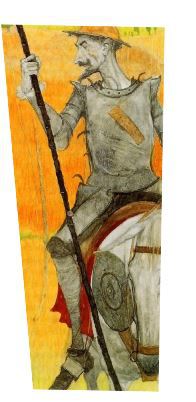
That looked like Eldorado.
And, as his strength
Failed him at length,
He met a pilgrim shadow—
‘Shadow,’ said he,
‘Where can it be—
This land of Eldorado?’
‘Over the Mountains
Of the Moon,
Down the Valley of the Shadow,
Ride, boldly ride,’
The shade replied,—
‘If you seek for Eldorado!’
“Eldorado,” from The Complete Poems and Stories of Edgar Allan Poe (1946)
______________________________________________________
John Keats (1795-1821), the English poet who died at age 25 from tuberculosis, still remains a central figure among the late Romantic poets, and is one of the most-loved English poets, because of the high quality of his comparatively small number of works. This short poem is eerie because of his approaching death.
“This living hand, now warm and capable”This living hand, now warm and capable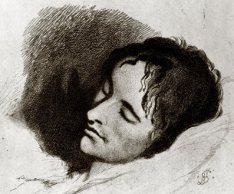
Of earnest grasping, would, if it were cold
And in the icy silence of the tomb,
So haunt thy days and chill thy dreaming nights
That thou would wish thine own heart dry of blood
So in my veins red life might stream again,
And thou be conscience-calm’d–see here it is–
I hold it towards you.
______________________________________________________
For the full effect of these poems, you should be reading them in a dark place by candlelight, but even in a brightly-lit room with all the latest high-tech innovations at hand, you can never be absolutely certain that “something wicked” isn’t lurking in the shadow behind the door, or about to come tap-tap-tapping at your window.
Happy Halloween!
______________________________________________________
Visuals- Cemetery
- Palo Verde in flower
- Angel Oak
- Red lipstick and smoke
- Woman silhouetted in fog
- Woman sitting on window sill looking out
- Don Quixote, by Svetlin Vassilev (detail)
- John Keats, drawn a month before he died, by Joseph Severn
Word Cloud photo by Larry Cloud
Share this:- More

